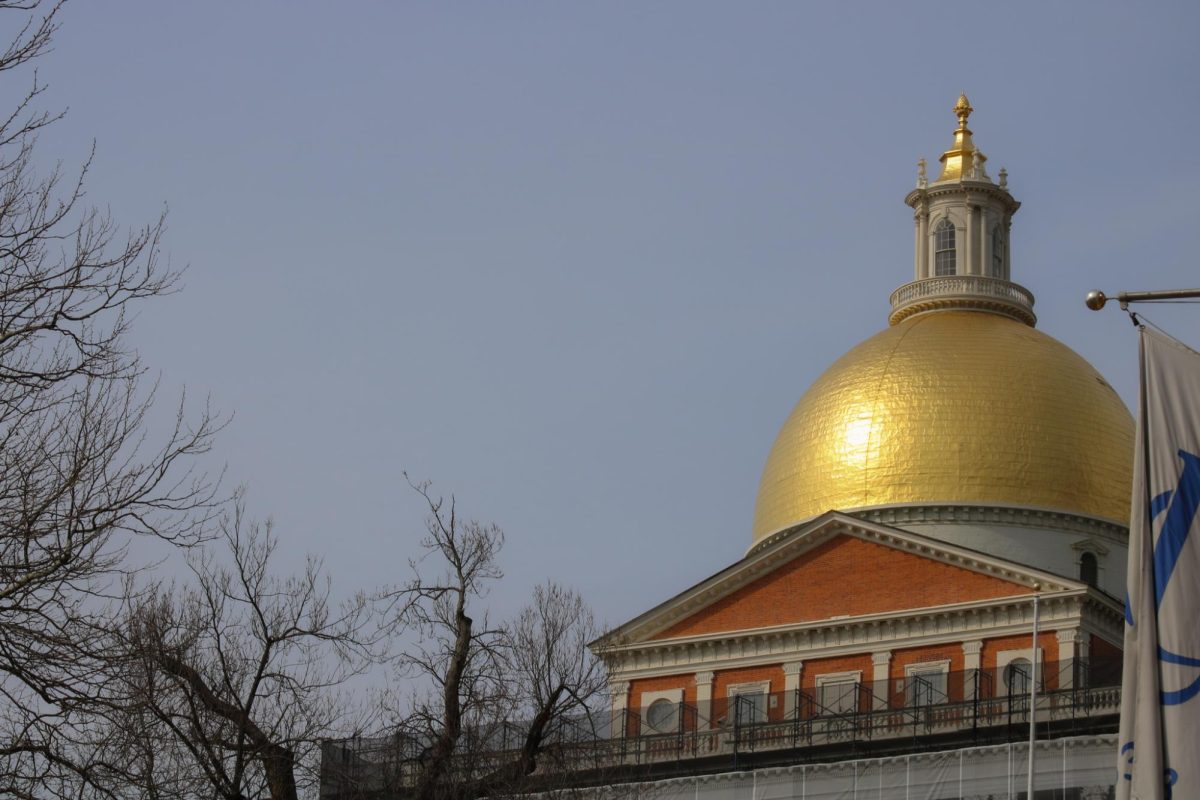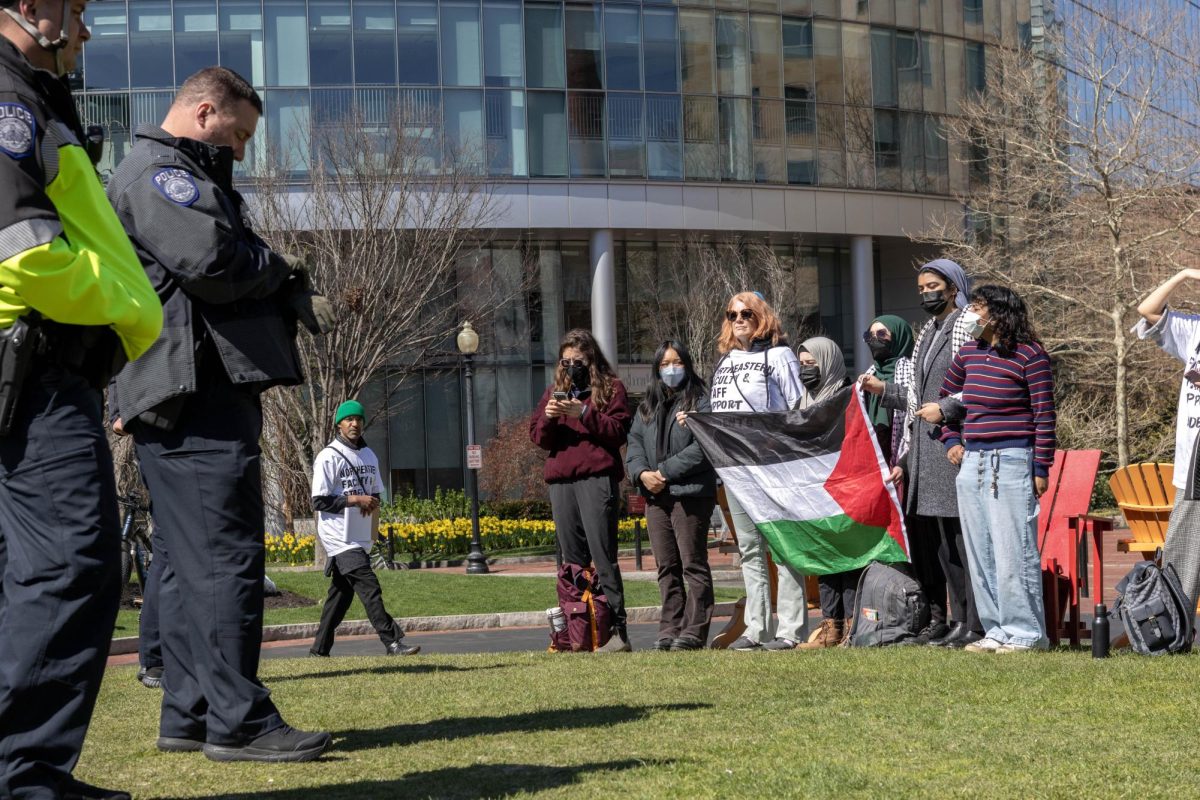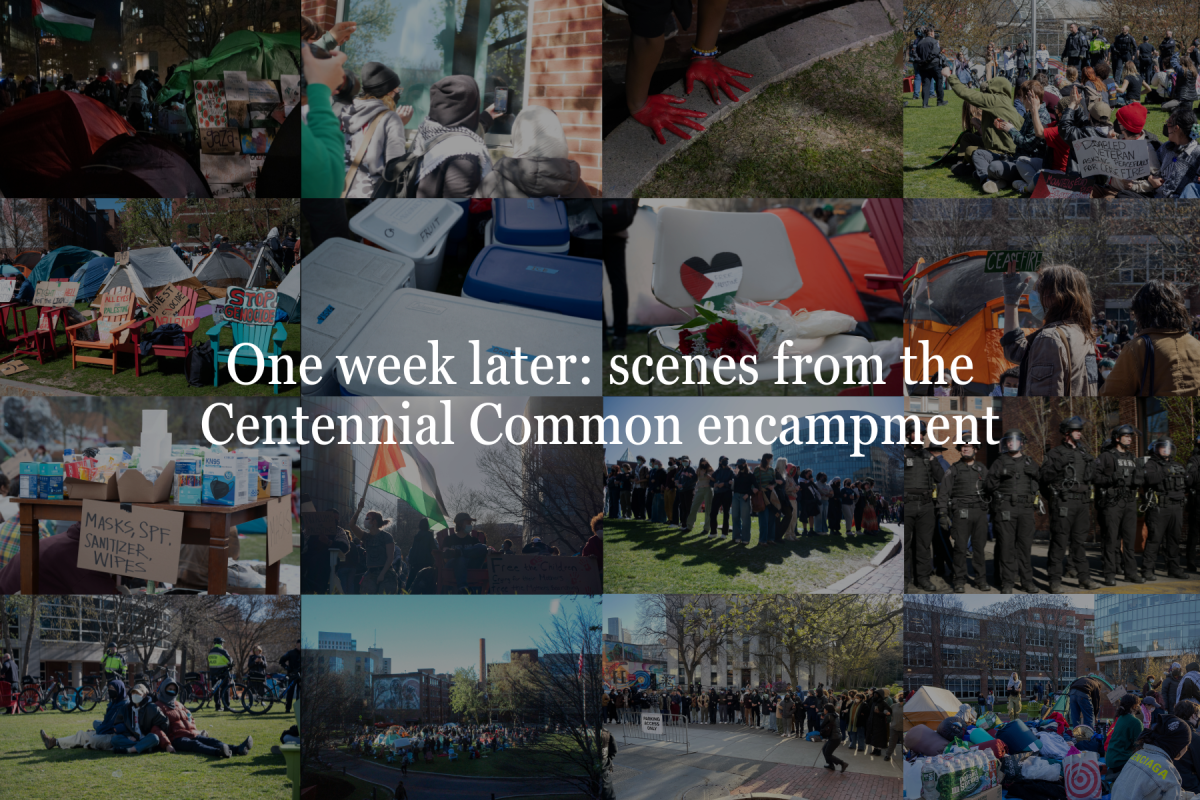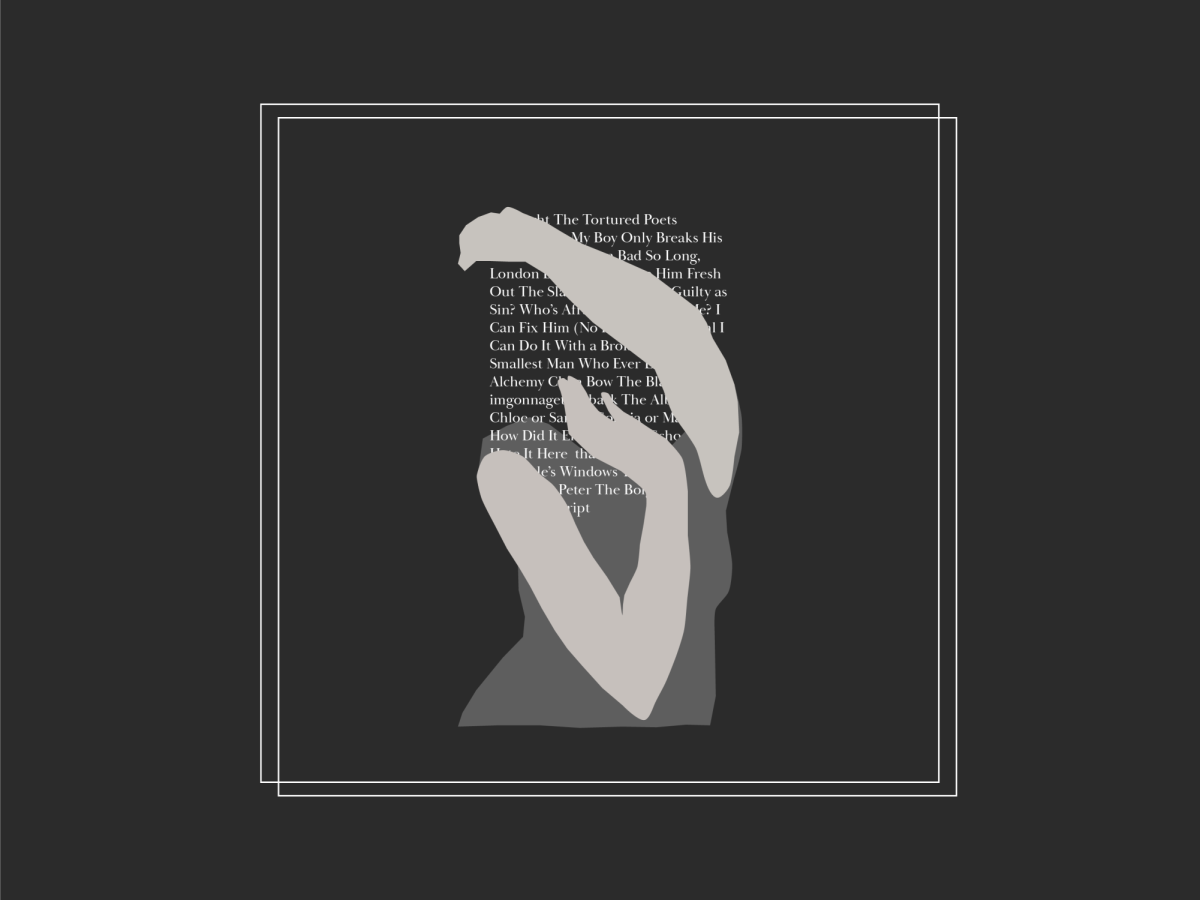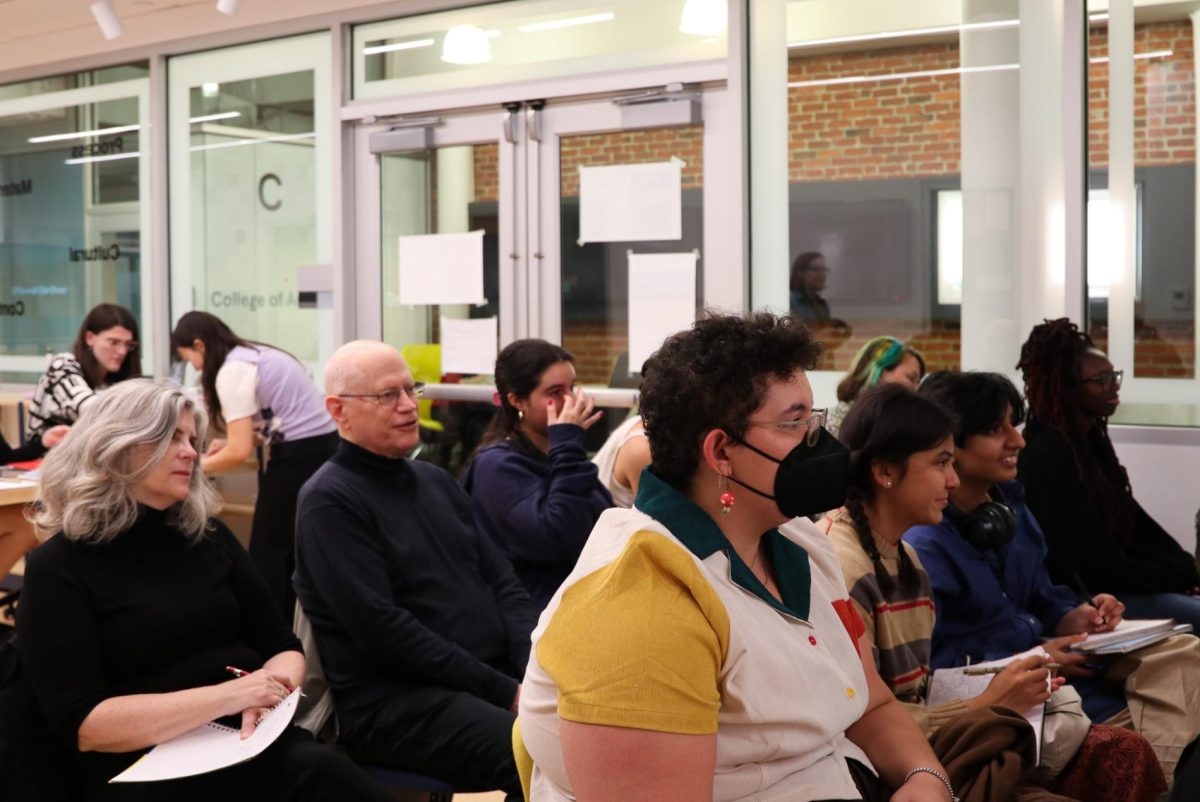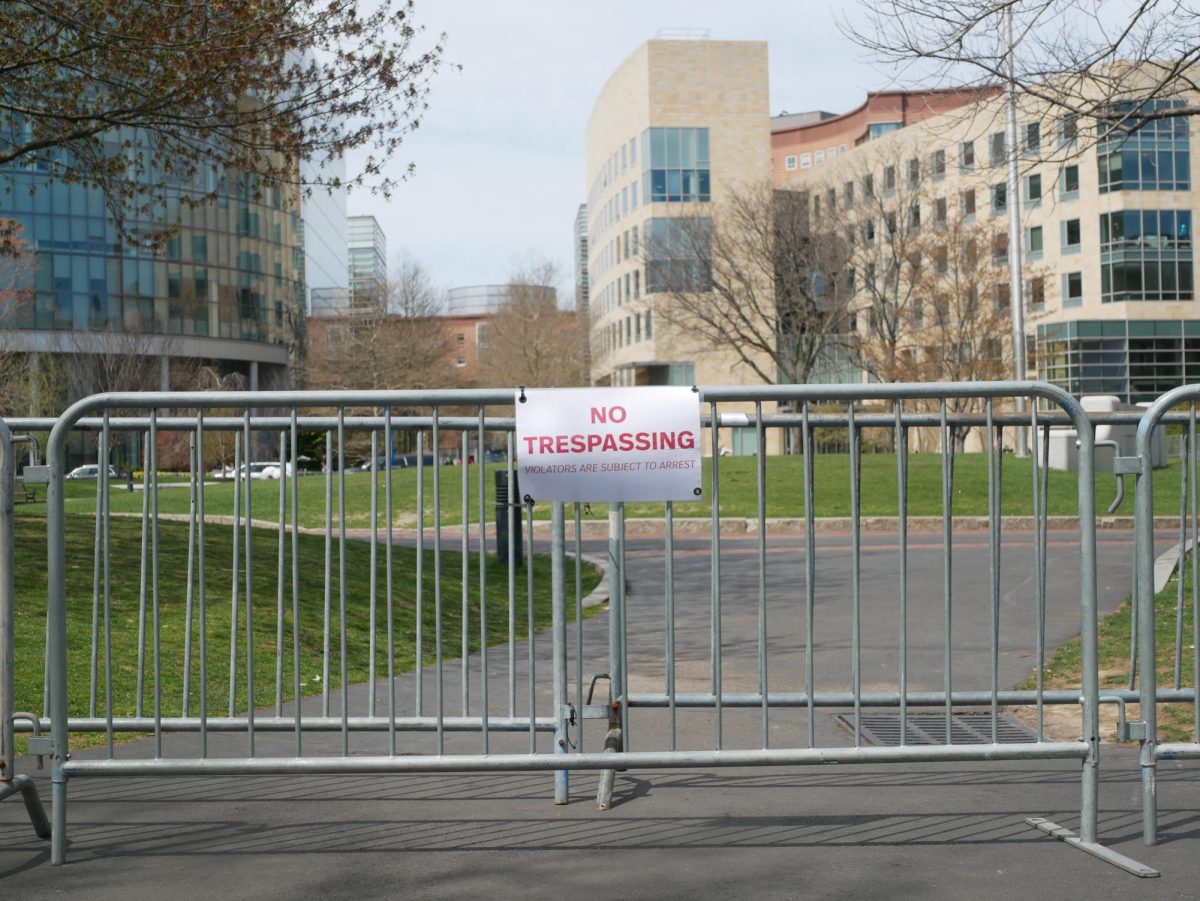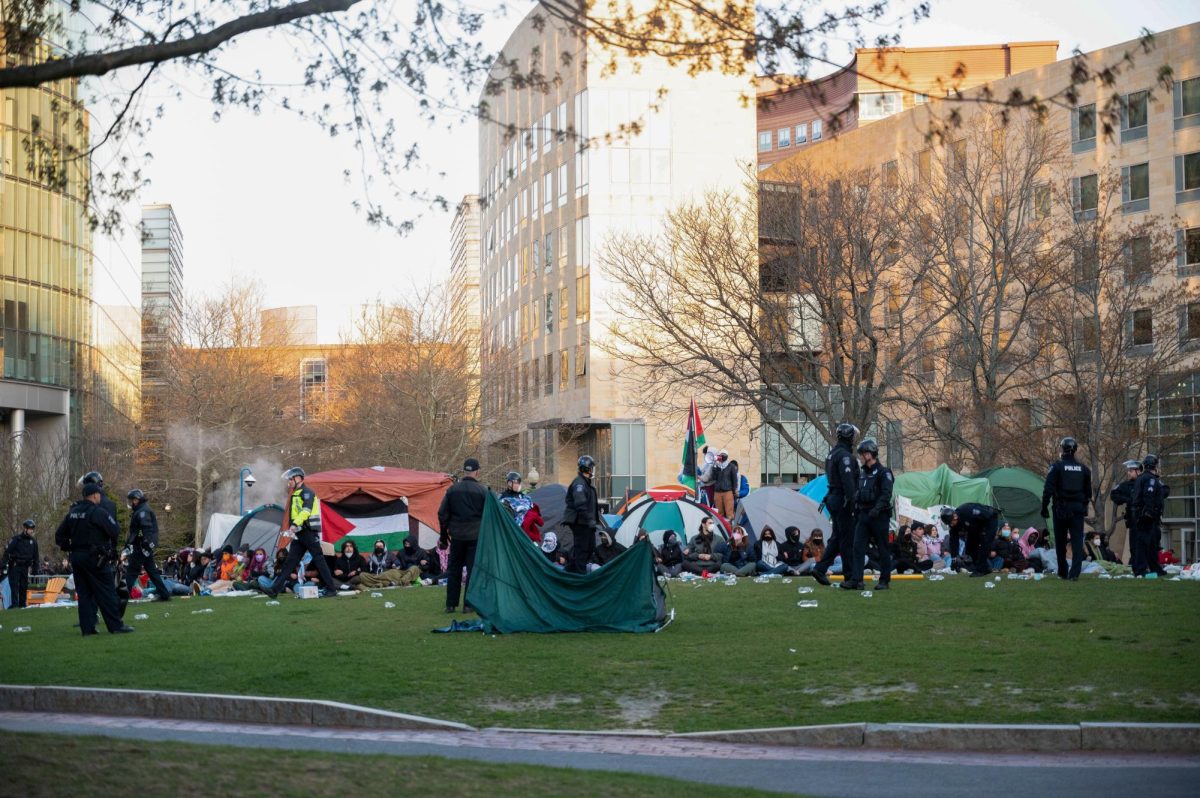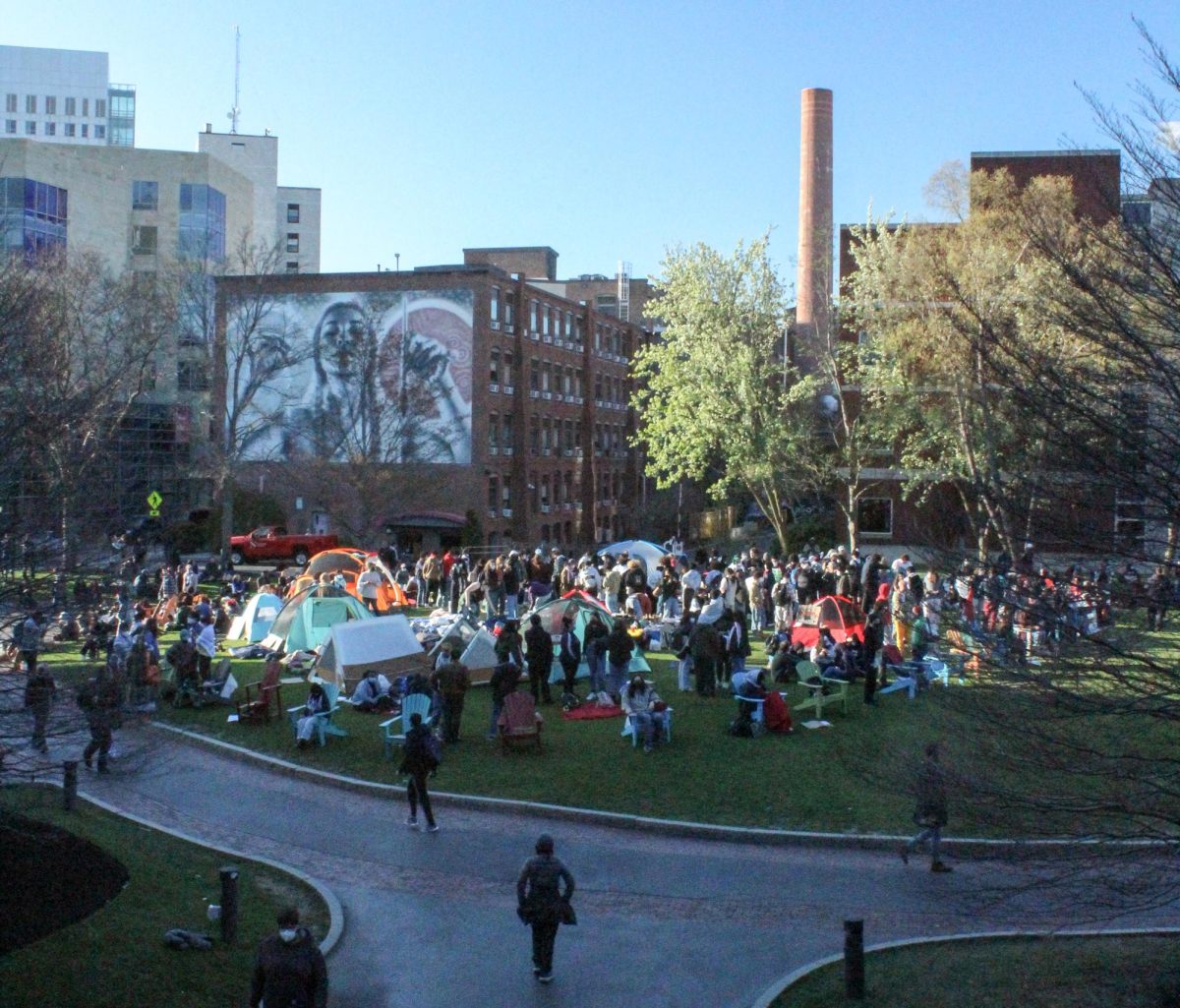In a panel hosted Oct. 19 titled “Queer Materials in Queer Hands: Archives and Accessibility,” hosted by the Center for the Arts, speakers from some of the most influential artistic, educational and archival projects gathered in the College of Arts Media and Design, or CAMD, Center for Design to celebrate the archival inheritance of queer art, culture and history. The panelists discussed how to democratize and expand access to documents, materials and records collected throughout queer history.
Joan Ilacqua, executive director of The History Project; Paul Soulellis, founder of Queer.Archive.Work; KJ Rawson, founder of the award-winning Digital Transgender Archive; and Aaron McIntosh, a cross-disciplinary artist featured by Northeastern’s Gallery360, spoke of their shared experiences in navigating queer history and expression as artists, activists and archivists while confronting institutional pressures and intra-community tensions.
“Since the 1980s, a lot of repositories are excited about queer material,” Ilacqua said when describing how The History Project has fought to maintain its non-profit status in Boston’s academic environment, which is dominated by private universities and government institutions that could have conflicting interests in their custodianship of queer records. “We believe LGBTQ+ history should be cared for, by and made available to the LGBTQ+ community.”
The panel, which was well attended by historians, students and artists, emphasized the importance of keeping “queer materials in queer hands,” a sentiment inspired by the work of Ben Power, a local historian who ran an archive out of their home. This principle places value in informal, or “bad” archives, such as personal collections of homoerotic magazines and other queer publications in a closet or basement.
Queer archives often depend on documents and art “made by people who were not educated in art or design,” said Soulellis, who stressed the necessity of “living and working with queer materials.”
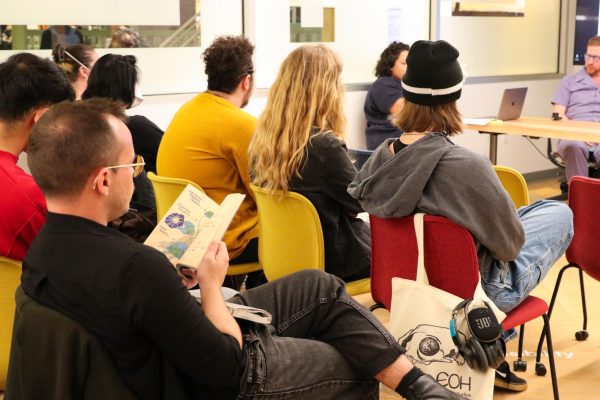
Although the LGBTQ+ community is more widely accepted than in the past, the panelists were in agreement that the best way to protect the community’s archival ancestry materials is to leave them in the care of queer institutions and custodians.
The panelists also discussed their experiences bridging gaps within queer history and storytelling, which much of their work has risen to the challenge of addressing.
“I had a problem. I couldn’t find any trans history,” Rawson said of his motivation to develop one of the nation’s most extensive transgender archives, which has expanded access to trans materials through digitization and collaboration with over 70 other institutions.
However, these gaps are not merely limited to the information available to scholars. The panelists discussed the generational differences within the queer community and how archives can serve as an instrument to work through the conflicts of cultural acceptance, gender roles and language between queer people who can’t always be united by shared experience.
“I’m interested in personal archive making and unofficial ways of reporting information,” said Megan Horn, a first-year doctoral student in art history at Boston University and panel attendee. “This panel piqued my interest in thinking theoretically about archives and thinking differently about the kind of archives I’ve been referencing … People are constantly creating ways of recording their own story.”
The event, which was organized by the Center for the Arts and co-sponsored by the Northeastern LGBTQA Resource Center and Gallery360, was the first of the gallery’s closing celebrations for McIntosh’s exhibit “Entanglements,” which was available for viewing from June 27 through Oct. 21, and the center’s month-long Pride celebration, “OUTober.”
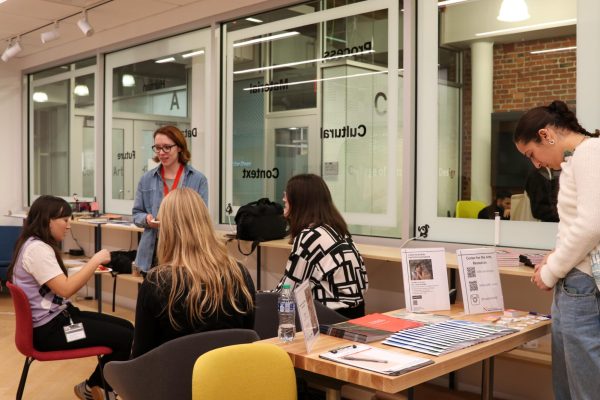
According to the exhibition description provided by Gallery360, McIntosh “envisions a world where diverse queer bodies across time and space are enmeshed with plant life — and where their quilted display envisions new futures for queer and botanical kinship” through the quilts, collages and sculptures of “Entanglements.” The exhibition is the first large presentation of the work outside of the southern United States, bringing the project’s message of “exponential growth” nationwide.
“I think I am, broadly speaking, interested in sharing queer history because we don’t have institutions that do it very well,” the fourth-generation quiltmaker said of his experience piecing together queer conversations and history by infusing his art with archival sources and references. “All queer archives that are not criminal records were started by queer individuals and communities and they were really the safe-guarders of their own history for a very long time.”
As the LGBTQA Resource Center will continue to host events to celebrate LGBTQ History Month throughout October, the panel serves as a poignant reminder for the Northeastern community to embody the spirit of an archivist and appreciate the sacrifice, activism and legacy of the LGBTQ+ elders, people of color and trans people who built a foundation of freedom for modern queer life.


